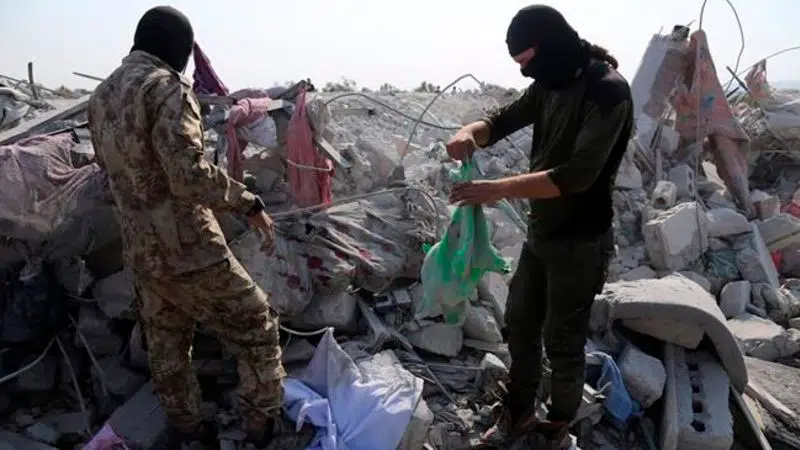
IS leader’s death ushers in new phase for the group
BEIRUT — One of Abu Bakr al-Baghdadi’s last audio messages was an appeal for his followers to do everything in their power to free Islamic State detainees and the women being held in jails and camps in northeastern Syria.
With news of the extremist group’s leader’s death, Kurdish security forces worried about the possibility of attacks or rioting have been tightening security at these facilities, which hold more than 80,000 members and supporters of the militant group, including women and children.
Fear of chaos already was running high over the fate of those detained after this month’s Turkish military invasion of northeastern Syria, which ushered in major troop changes in the area about two weeks after al-Baghdadi’s message. Kurdish officials said they needed to divert fighters and logistics to the front line to ward off the Turkish offensive. Turkey moved troops into areas along the border, while Syrian border guards were deployed in others.
A shaky cease-fire is in place and an agreement to redeploy Kurdish forces away from the borders.


